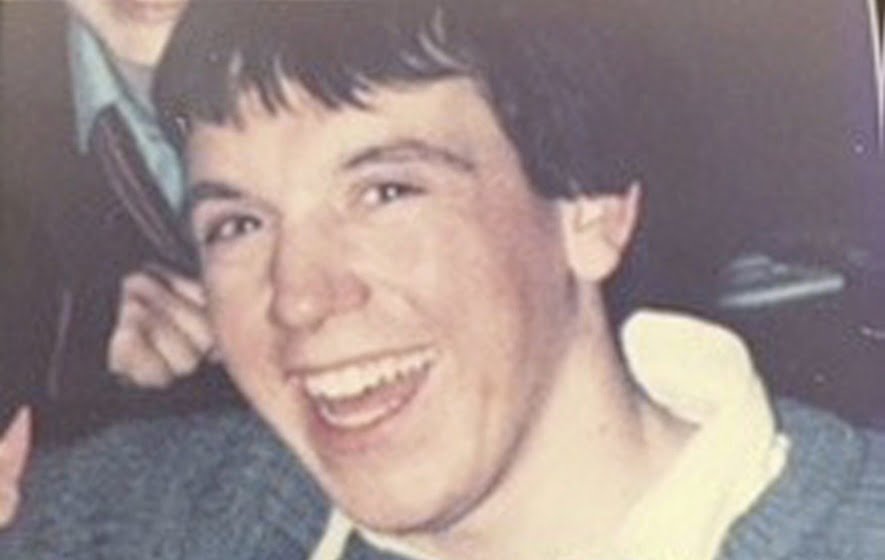The inquest into the death of Francis Bradley continued in Coleraine this week. Twenty-year-old Francis Bradley was killed by the British army in a suspected shoot-to-kill operation on the 18th of February, 1986. Although an inquest into his death was held in 1987, a new inquest began in April 2023.
Yesterday’s only witness was Soldier E, an anonymous soldier whose military record was withheld from Mr Bradley’s family and the public for ‘national security’ concerns. Throughout his testimony, Soldier E stated that he could not remember details of the night in question; and his evidence relied heavily on a deposition he made on the 20th of February 1986, just two days after Francis Bradley was killed by a covert British military unit.
On the night of Francis Bradley’s killing, Soldier E was deployed as part of an operation to ‘apprehend’ suspected ‘terrorists’. There were no stipulations or instructions that the individuals should be apprehended alive. Citing national security concerns, he declined to answer why he, a member of the surveillance sub-unit, had been deployed with the reactive sub-unit on the night in question.
Soldier E described the sequence of events as follows:
The five soldiers (A-E) were lined up behind a hedgerow, facing inward toward a field with several outbuildings. Soldier A shouted ‘Halt!’ at someone Soldier E could not see, and then there was a burst of gunfire. When a soldier yelled ‘There’s a runner going right,’ and Soldiers A and E moved to their right and tried unsuccessfully to climb through the hedge. They returned to their original positions behind the hedges and second round of gunfire sounded. Soldier C then advanced into the field, with Soldiers A and E flanking him. Soldier C shot a third burst of gunfire, this time shooting toward one of the outbuildings. Soldier E illuminated the area using a torch, though he could not see anything that would have caused Soldier C to discharge his weapon. Soldier C opened fire again, shooting toward the same area. Soldier E then entered the field and saw a body on the ground, with a rifle lying near his left side. Shortly after the soldiers re-grouped, Soldier E joined Soldier D in covering two individuals who Soldier D had arrested. Soldier E covered the individuals until police arrived on the scene.
Karen Quinlivan KC, representing Francis Bradley’s family, noted that according to Soldier E’s own description, the soldiers would have been unable to see into the field they were allegedly watching to arrest the suspected gunmen. And if the soldiers had seen a gunman enter the area, the position would have made it difficult, if not impossible, to make an arrest. Their position would have been ideal, however, to shoot the alleged gunman. Soldier E gave no sufficient rebuttal and could not recall any arrest plans in place that night. Following this exchange, Ms Quinlivan noted that an arrest that night ‘was never realistic.’
When questioned, Soldier E stated that at no point did he see what Soldier C was firing toward, nor did he see anything that would have made him open fire himself. After this line of questioning, it came to light that Devonshires, the lawyers representing the soldiers, had made claims to an expert witness that completely contradict Soldier E’s evidence.
In their instruction letter to a medical professor regarding interpretation of evidence, Devonshires wrote that Soldiers E and C both stated that they saw Francis Bradley lying on the ground, trying to sit up and reaching for a weapon. The letter stated that Soldier E had switched off the safety and was about to fire his weapon at Francis Bradley, but Soldier C shot a burst of automatic gunfire at Mr Bradley before Soldier E had the chance. Soldier E was adamant that this was not true, and that at no point did he state that Francis Bradley was in a position to fire at the soldiers. Soldier E had no explanation why Devonshires would have attributed this information to him.
Soldier C, who likely fired the shots that killed Francis Bradley, has also been implicated in the fatal shooting of two other young men in the north of Ireland. The inquest will hear Soldier C’s evidence on Wednesday, the 6th of March, 2024.









